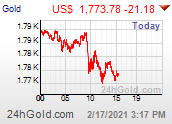More Bond Talk (Elevated from the Comments)
It's not every day that I get a comment from an esteemed blogger such as Andrew Oh'Willeke at Wash Park Prophet, plus a mention by another of my favorites, George in Denver. So I'll take this opportunity to elevate the discussion from the comments to the posts.
First let me thank Andrew Oh’Willeke for the comment in the post below. It is always reassuring to know that at least we bloggers are giving thoughtful consideration to each other’s posts.
But Andrew, I must take exception to your rejection of the premise that municipal bonds might be affected by the global credit freeze up. Complaints about the ordinate on the graph strike me as complaining about the alignment of the infamous deck chairs on the Titanic. As you know, changes in the dollar index are normally quite small, as vast amounts of currency are involved, thus the increments on the ordinate are small. The graph I included is just as it comes from the NYBOT site. Perhaps a more recent condensed version would convince you that the dollar is in serious decline.
As to your not being worried about the possible ramifications of this decline on the insurers of these muni bonds, I must confess I know only what I read. The day following my post the U.K. Telegraph published another article speaking specifically to your point about the possibility of AAA ratings (like Denver's current ratings) being affected. I quote:
And from the broader world of financial commentary:The potential damage from any downgrade could stretch far beyond the companies themselves by lowering the credit ratings of the AAA bonds that they insure. This could force pension funds, mutual funds, and institutions to liquidate holdings on a vast scale, causing the credit crisis to spread into areas that have remained unscathed until now.
......Matt Fabian, managing director of Municipal Market Advisors, said any downgrades would be a "crushing blow" to the municipal bond market. "I have never seen a crisis of confidence in insurers like this before," he said.
America is finished, washed up, kaput. Foreign investors and central banks around the world have lost confidence in US markets and are headed for the exits. The dollar is sinking, the country is insolvent, and its leaders are barking mad. That’s bad for business. Investors are voting with their feet. They’ve had enough. Capital is flowing to China and the Far East in a torrent.It’s "sayonara" Manhattan and “Hello” Tiananmen Square.
As to the "assurance of repayment being high because of the way property taxes are structured", would that be because the interest gets paid first? Even if the tax revenues fall because of foreclosure and default? Will Ritter's property tax freeze protect us or kill us?
Foreclosures in Denver per 1000 homes:
2nd quarter - 2006 - 5.92
3rd quarter - 2006 - 11.11
1st quarter - 2007 - 21.28
And another worrisome thought, what if there is a 40% cost overrun on these projects as there was on the previous bond projects?
I really don't think these bonds won't be sold, but at what price? I've seen the prime rate at 18% and house prices fall by 50%, right here in good old Denver (during the '80s recession). The current triple whammy of elevated real estate appraisals, property tax freeze, increasing foreclosure and default, and inflation (real) running at 12% (oh wait, that's a quadruple whammy), will have me squealing like a stuck pig on a fixed income.
Ah, time will tell. But right now I've got to get back to more pressing concerns. The leaves in my back yard are nearly a foot deep, and it's a beautiful day in Denver.











Just a bit more.
ReplyDeleteJust because a big player uses it, doesn't mean that a graph is useful for the purpose used. What non-truncated borders do is show that overall the percentage changes are much smaller than they seem. Small changes matter a lot of bond traders. What matters to Denver is percentage change in the total cost of the bond issuance, which is very small.
Denver has basically two kinds of bonds -- property tax based and enterprise revenue based. A typical revenue bond would be one based on income from DIA. Almost all of the insured bonds in Denver are revenue bonds, where there is a real risk because property taxing ability isn't pledged to pay them.
You can fit the number of properties with unpaid property tax bills in all of Denver, as of late 2007, that are more than a year old, on a single sheet of yellow lined paper. Most of those are for properties valued at less than $1,000. If in the end, the property has to be sold for taxes, property taxes have priority over all mortgages, liens, judgment and other encumbrances on the property. You need something like a 95% decline in property values for non-payment to be an issue.
Property taxes that support bond issues are imposed based upon dollars needed each year, not on a specific mill levy amount. So, if property values fall, property taxes go up, without the intervention of a TABOR vote. The portion of payments attributable to those taxes are further pledged to bond payments before any other use.
In any case, Denver is considerably less vulnerable to a major crash than it was in the early 1980s, because it has a far more diversified economy now. We aren't a cow town or an oil city any more.
In short, the risk of default is negligible. The city would have to go bankrupty (and even then the bond holders would probably be paid in full, but possibly more slowly), and the biggest factor that would cause it a bankruptcy or default would be a massive fraud by city officials. If Hick and Gallagher suddenly show up in a Swiss palace, it is time to dump your Denver Munis.
Munis generally earn returns equal to comparable treasury bonds discounted by the top effective income tax rate, because they are a tax dodge, and with rates increased to reflect risk. I can't think of any major issues that have gone unsold. A federal income tax cut for high income earners would hurt Denver's muni rate more than any conceivable increase in risk from less solvent reinsurers of bonds.
A general increase in interest rates at the time of actual issuance of the authorized bonds would hurt the city, but, lucky for us, interest rates have remained low and inflation is also still modest. I don't buy the "sky is falling" assessment of our current economic situation -- we may be staring down a recession, but I don't think that the Great Depression is right around the corner.
Price increases for what we intended to purchase with the bonds, that make it impossible to buy everything desired with the money borrowed, is a real risk. FasTracks and many other recent bond issues have been hit with this problem. But, the markets that matter for this issue are local labor markets and international commodity markets (e.g. construction metals). In any case, this doesn't mean we get nothing for the bonds, only that we get less than we hope we could afford.
Kenysians would say that if indeed a weak economic future is predicted that pubilc spending is exactly what you should be doing. I'm not convinced of that proposition, but I don't believe that public spending is any worse in bad economic times than in good economic times.
Well, Andrew, you are clearly a lot more optimistic than I. This just in: Municipal Bond Deals Squeezed By Credit Crisis
ReplyDeleteBy David Cho
Washington Post Staff Writer
Thursday, November 29, 2007;
The widening credit crunch is making it harder for cities and school systems to get money for buildings, ballparks and other vital projects from the $2.5 trillion market for municipal bonds, a sector of Wall Street that rarely sees trouble.
That is leaving them with a tough choice: either put off the projects, or pay higher interest rates on their bonds, a cost that ultimately would fall on the backs of taxpayers.
Faced with the prospect of paying higher interest rates this month, Chicago canceled a $960 million bond. Miami-Dade County pulled a $540 million offering for its airport. And the District has a $350 million bond for schools, parks and roads scheduled for next month that could be delayed if credit conditions continue to deteriorate, a top D.C. finance official said.
Several finance directors said it is unusual for turbulence to hit municipal bonds, a tax-exempt investment that has long been considered safe.
"There's some unique and maybe even unprecedented dynamics that have been occurring because of the credit crunch," said Lasana Mack, the District's treasurer.
For the past several years, cities and towns have been able to borrow money by issuing bonds that pay historically low interest rates. That era of easy money is ending for many municipalities, mostly because of spiraling losses in the mortgage industry that have been driving up borrowing costs.
The municipal bond market has been squeezed by steep losses among bond insurance firms. Towns and cities with poorer credit ratings often rely on these insurers to back their bonds, enabling them to pay lower interest rates. But now bond insurers are facing massive write-downs because they promised to cover losses in the mortgage industry, leading some to stop insuring new projects.
"It's opening a lot of eyes that not only the big banks were getting overextended in these mortgage markets segments. Bond insurers were right there with them," said Robert Nelson, managing analyst at Thomson Financial.
Some bond insurers are running out of money. A few are in danger of having their credit downgraded, which could cripple their business. The stock prices of most of the companies, including MBIA and Ambac Financial, have plummeted in recent weeks.
Without insurers helping them, lower-rated municipalities face even higher interest rates. It's a double whammy for them because in addition to higher borrowing costs, many municipalities are experiencing declines in tax revenue as real estate values fall.
The turmoil is emblematic of how the credit mess is spreading across Wall Street in unpredictable ways. If it continues to roil municipal bond markets for a sustained time, it could pull airport users, city residents and even sports fans into the pain. Many towns and cities are already facing higher borrowing costs; further problems in the bond market could cause hospitals to put off constructing new wings and make some transportation projects more expensive to finance.
Maryland and Virginia have the highest credit rating possible, "AAA," and have been largely unaffected by the bond market's problems.
The District, which is rated "A," typically relies on insurers to issue bonds. It would likely have to pay a higher interest rate when it issues its $350 million in general obligation bonds in December, debt market analysts said. That money would pay for renovations at Brightwood Elementary School, Hardy Middle School and Cardozo High School; rebuilding of the 11th Street and Sousa bridges; and improvements to the Woodrow Wilson High School indoor swimming pool, and Roper/Deanwood Recreation Center.
The $355 million bond the District issued last year for the new Washington Nationals stadium dropped in value this month on the secondary markets, where municipal bonds, after they are issued, are traded on exchanges like stocks. That drop was a sign that investors are shunning debt instruments they consider risky.
The District escaped the market pain on its stadium bonds because it locked in a low interest rate when they were originally issued. The recent performance of those bonds is a bad sign, though, for other cities that want to finance stadiums through the debt markets.
Some municipalities are putting off bonds altogether. Miami-Dade County had planned a massive bond, backed by airport revenue, that would have financed capital improvements to Miami-Dade airport. The project was given an A-minus rating, which is at the low end of investment grade bonds. The county sought the help of a AAA-rated bond insurer. But the interest rate still wound up being much higher than the county wanted to pay.
"Unfortunately, when we went to market, the market was very volatile and we were not able to achieve the savings that we needed," said Rachel E. Baum, finance director for Miami-Dade County. "That's one of the reasons why we pulled it. We were disappointed. . . . It is unusual."
The municipal bond market problems have not yet reached a critical stage, said Stanley Milesky, Baltimore's chief of treasury management. Compared with the 1990s, interest rates are still at a low level.
And the municipal market for all of 2007 will likely break records for total volume of long-term bonds issued, largely because the municipal bond market was roaring for the first nine months of the year; the slump started in late October. Through the end of September, states and municipal issuers sold $324 billion in bonds this year, up 22 percent over the same period last year, the Securities Industry and Financial Markets Association said.
The trouble, Milesky said, is occurring more at the fringes of the bond market, but "it could catch people unaware."
Other municipal finance directors and analysts said they are increasingly concerned that the credit mess will lead to a broader slowdown.
"When access to credit is being restricted to a municipality that borrows money, there are trickle-down effects throughout the economy," said Nelson, the Thomson Financial analyst. "It's tough to tell how this will work itself out. I don't think anybody has a really good answer. For many it's a wait-and-see mindset."
http://www.washingtonpost.com/wp-dyn/content/article/2007/11/28/AR2007112802486.html?wpisrc=newsletter
I will note that ten months later, and much, much deeper into the collapse of the financial system, Denver bonds are still rated AAA, and Denver's real estate market is among the healthiest of any major city in the nation.
ReplyDelete